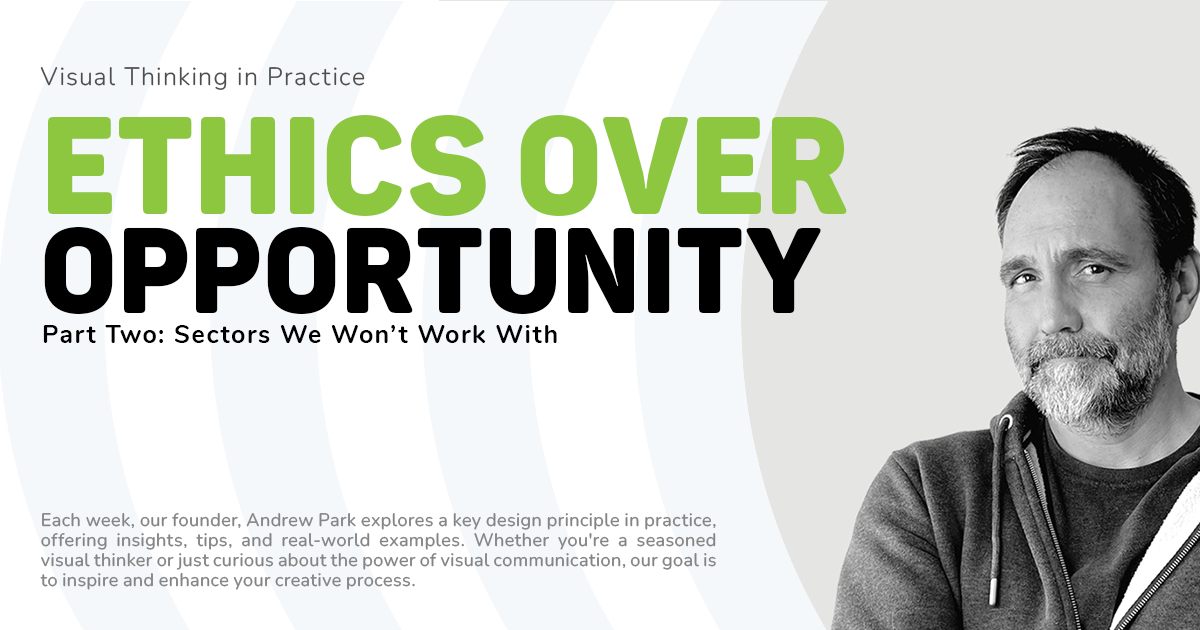Whiteboard animation works using three pillars of communication; audio, visual and text. This gives it the ability to cater to several different types of learner. As a result, a well made whiteboard animation can unlock a powerful level of understanding in the viewer. But what makes whiteboard animation work? The strengths of whiteboard animation come from nine different techniques which come together make bespoke, memorable and engaging animations. A whiteboard animation needs all of them to achieve its full potential and impact, which we’ll explore below.
Layout
The foundations of whiteboard animations started as a way to map information in space, to make it more accessible. This important element helps improve the clarity of the information and the way the narrative unfolds. A good layout lets the story develop in a natural way, while information builds on itself and gains momentum - allowing complex messages to be explained.
Framing and Focus
Once these foundations have been laid, framing and focus come into play to maximise the power of the layout. Good framing focuses a viewers attention and removes distractions. It goes beyond this however, framing is integral to the storytelling. It sets the stage on which the story plays out and allows the message to be delivered with impact.
Charm
Charm is that extra detail, the bits that make you smile and feel. It is the sprinkles on top of the storytelling cake. Whiteboard is well placed to create these flourishes. We give illustrators and animators a lot of freedom to add charm throughout our whiteboard animations, making it more engaging and memorable for viewers. Charm is an essential asset when working on complex or dry subjects.
Visual Thinking and Metaphors
Insightful visual thinking lies at the heart of whiteboard animation. It is what creators use to translate a film from dense copy into a rich visual world. Each client and message is different, and the creative approach changes for each film to reflect this. This way of working means that every animation is bespoke and tailored to its audience perfectly.
Quality of Storytelling
Storytelling is as old as humanity itself, and the heart and soul of whiteboard animation. Within an animation it weaves together facts, messages and tone; transporting viewers on a journey into the clients world. To get this story perfect it is first captured in a written script, which forms the basis for the visual thinking. Finally it reappears with the right voiceover to a create a dynamic, cohesive story.
Characters
Characters facilitate the telling of your story and thanks to the freedom within whiteboard animation, you decide who or what your characters are. Age, clothing, gender, appearance, animals or even objects - you can tailor them to fit your brand and your audience. Good illustrators will use dynamic poses, body language and situations to help people engage and connect to the character. This helps people to connect and stay with the story.
Typography
There is more to visual storytelling than just a well chosen metaphor. Text completes the visual storytelling, helping to reinforce the finer details and key points. It is an important part of the visual experience and adds to the recall of the main messages. Good typography is essential. It can make or break the tone and style of a film, and it is a crucial consideration for the creative team.
Animation
If storytelling is the heart and soul of a whiteboard animation, then animation is its muscles. Animation has a big role in the films pace and framing, and leads the viewer through the film. As the navigator, it has a very important job. It has to help tell the story and engage viewers but not create any distractions that would hinder the viewers experience.
Sound and Music
Sound and music bring another layer to a whiteboard animation. The voiceover has a crucial role, combining with the visuals to tell a rich story. Good soundscapes will bring energy and emotion to animation, but the pacing has to be perfect. Music and sound effects can add ideal background, punctuation and charm. It is important to remember that they can also distract if not done well - a deft touch is needed from your creative team here.
Whiteboard animations are so much more than the sum of their parts, but each part has to be done to a high standard to create animations that achieve the full potential of this powerful medium. High quality whiteboard animations are engaging, informative and capable of tackling subjects of any complexity or density. They are memorable for the audience and bespoke.











Often the very first books we encounter are picture books, our first introduction to the power of rich visual language. While our books change, the power of this language doesn’t. We’ve reflected on visual language, from picture books to explainer videos and whiteboard animation.